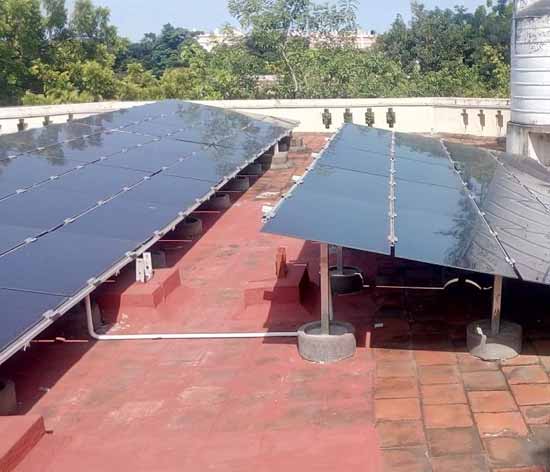
In 2017, MS Swaminathan Research Foundation (MSSRF), Chennai, entered into a partnership with the Tata Trusts to transform the Bhootalingam Library (their central resource hub) as a green and eco-friendly centre of learning as per the mandate of UN’s SDG7, ‘to afford and generate clean and renewable energy’. The Trusts’ support saw MSSRF not only achieve all indicators of UN’s SDG7 but aspiring to mentor a network of libraries across the state in adopting similar operating models that are energy compliant and efficient.
MSSRF’s work as one of India’s only green libraries has reached international shores. In March 2019, the World Library and Information Congress (WLIC) selected MSSRF’s case study for presentation at their 85th convention in Athens in August 2019. Mr Janakiraman, Head of Libraries at MSSRF, with the support of the Tata Trusts will make a poster presentation of their initiative at the convention to secure international support and expertise to further their green cause.
Titled ‘MSSRF’s Sustainable Green Library to Achieve SDG7’, Mr Janakiraman’s paper for the WLIC Athens convention states the main reason of building an eco-friendly centre of learning was to harness the innovation of solar panels to generate clean energy for running the centre and to incubate the concept of generating cost-efficient renewable energy in compact spaces. His paper further explains the various innovations developed to help them achieve SDG7, such as building a distributed generation model for electricity (the first time for a library), the development of a smart micro grid and energy-efficient DC appliances.
The paper states that as per the operational plan the smart micro grid and grid controller evolves into a very complex adaptive system under distributed control. It is spatially and temporally complex, non-convex, non-linear and non-stationary, with a lot of variability and uncertainty, beyond what the traditional power system experiences. A direct outcome of the project was the development of a central air-conditioning and humidity controller unit; all running on solar energy.
His paper outlines the next steps of the project — to achieve sustainability through knowledge sharing and mentorship of libraries across Tamil Nadu by adapting green energy models for their operation. MSSRF aspires to build government partnerships in Tamil Nadu, where the foundation would demonstrate how building a green library minimises electricity consumption through maximum use of renewable resources like air, sunlight and wood. It would validate this through its example of using interventions such as the permanent magnet brushless DC or synchronous motors that increase energy efficiency and reduce electrical load, does not need inverters and enables all appliances to run from AC grid power by using an AC-DC converter, which rectifies the AC to DC — a big leap for all built infrastructure that use electricity in India.
MSSRF’s paper and legacy plan explains how energy demand will grow by 30 percent across India in the next three years, but will be plagued with severe infrastructure issues. The foundation believes substantial migration is possible by using renewable sources integrated with new technologies, a path it has chosen to tread and into which it aims to usher in others.
—Arnab Banerjee
